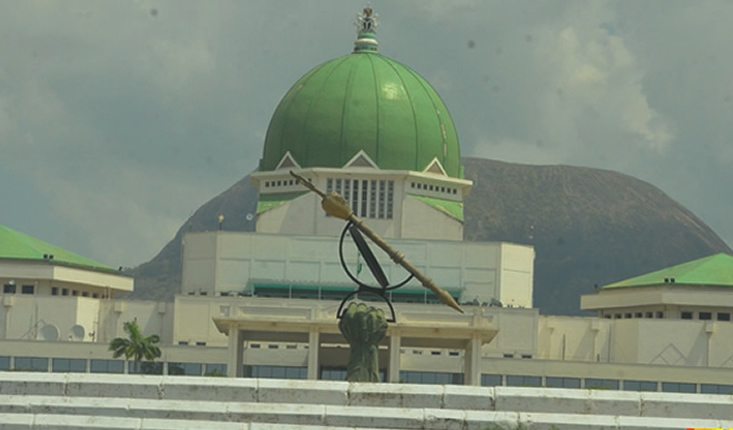
If there is any perfect example in recent times that demonstrates beyond reasonable doubt that Nigeria is a nation reputed for doing one thing repeatedly and expects a different result, it is the present intrigues surrounding the nomination of principal officers for the incoming 10th National Assembly.
For a better understanding of where the piece is headed, the National Assembly is one of the three arms that made up Nigeria’s presidential system of government. It is statutorily referred to as the legislative arm. It is independent from the other arms (Executive and judiciary) and headed by the President of the Senate who is assisted by the deputy Senate president. They both work with the principal officers in the house including the majority leader, deputy majority leader, minority leader, deputy minority leader, chief whip, deputy chief whip, minority whip and deputy minority whip. Same is applicable to the House of Representatives headed by the speaker and assisted by the deputy with other officers similar to those mentioned above.
Fundamentally, everyone in the National Assembly ought to be traditionally interested in the day-to-day existence of the average people in the country and honestly work hard to improve their lives by offering selfless service in the offices they occupy.
From the above clarification, it becomes a worrying concern to well-meaning Nigerians as to why the present interference, distractions and involvements from outside particularly the incoming executive arm, political parties, ethno-religious groups, regions and powerful personalities on how the 10th NASS leadership will emerge.
Qualifying the development as frightening is the awareness that this was a similar leadership recruitment interference witnessed by the outgoing 9th National Assembly. The House is arguably filled with the best trained and most highly skilled in the history of NASS in Nigeria, but could not make laws that enhanced the lives of Nigerians. It appears that the 9th NASS is unrecognisable compared to what was witnessed in the past.
The facts speak for themselves. There are many distinguished senators and reps currently serving. Yet, the present legislative arm operates as if it is subservient to the executive arm.
The mountain of foreign debt incurred by the outgoing administration and approved by the 9th National Assembly without recourse to its harsh impact on both Nigeria and Nigerians is another example of glaring NASS leadership failure that must be avoided by the incoming assembly.
Ultimately, while this politicking for the leadership of the yet-to-be constituted assembly deepens, what, however, made the present situation a curious one is that an exercise like election of principal officers is constitutionally supposed to be an internal affair within the assembly. But suddenly against all known logic got characterised by national intrigues, with the ruling party, the All Progressives Congress taking time to underline the advantages, and otherwise of having a particular lawmaker in a particular position.
Within this period, I have also listened and read different arguments by APC-advocates, outline attributes in support of the interference in the leadership nomination.
Some hinged their arguments on the time-honoured but deformed political ideology in the country which insists that party is supreme and as a result, the ruling party has the right to determine who becomes what in the incoming assembly. Others argued that politics is a game of numbers and rides on the wheels of ‘to whom much is given, much is expected.’ To the rest, the executive arm of government should have every reason to be interested in the principal officers to emerge at the 10th National Assembly.
To this group, their argument is predicated on the fact that executive input will assist to promote a rancour-free relationship between the two arms of government while ensuring equity, justice and compliance with federal character.
Despite the validity of the above arguments, if allowed to fly, a future crisis is envisaged that may unnerve Nigerians. These present fears expressed cannot be described as groundless as there are grains of truth in all of its concerns.
Aside from non promotion of meritocracy, the greater consequences and hidden danger inherent in the ongoing selection and insistence on ‘anointed candidates’’ by the ruling party without recourse to democratic process and House independence, is that in the absence of rigorous accountability, incompetence flourishes, dishonesty encouraged and rewarded.
To, therefore, make the incoming 10th Assembly legislate for the poor, the senators-elect must be given a freehand to elect their principal officers as interference can set the stage for abridgement of the freedom of the lawmakers and by extension encroach on the masses’ rights.
There is equally an urgent need for the incoming National Assembly members to anchor their election of leaders on competence as against party affiliations and other mundane considerations. This is the task ahead of the 10th National Assembly.





